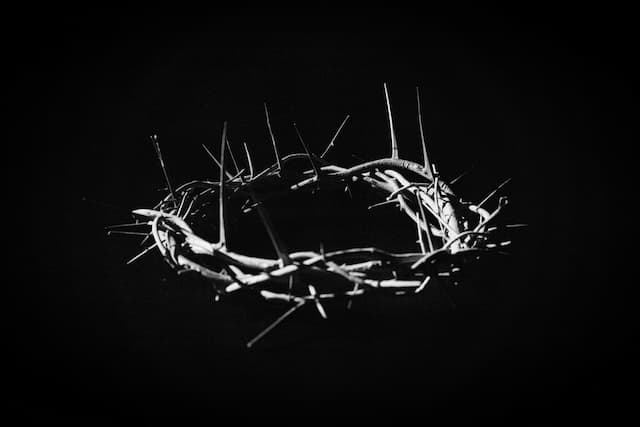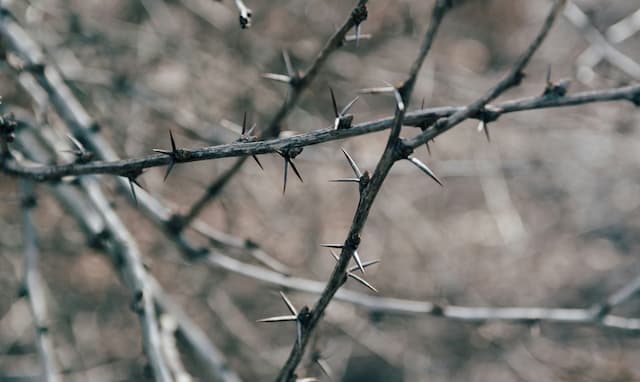Why I (Finally) Got the Jab - Emmanuel Baptist Church

This article is different from most others I’ve written here. Rather than explain or unpack passages of Scripture, this time I’m simply sharing my personal perspectives and experiences with my church family. I’m speaking for myself here, not my fellow elders or my church as a whole. Please keep that in mind as you read.
Please also know that I’m still unsure about clicking “publish” on this one. I’m a pastor, not a medical professional, and I know that I need to stay in my lane. But I’ve also come to realize that, at least in some places, the line between theology and medicine is blurry these days. Some think that their Christian convictions give them a “religious exemption” to any vaccine requirement. Others believe that Christ’s command to love our neighbour means that all Christians must be vaccinated.
Theology—good or bad—is being used to inform medical decisions. So perhaps a word or two from a pastor is not entirely out of order.
What I share here is primarily for the vaccine-hesitant. Yes, they’re still out there, in some numbers, especially in smaller centres like the one I minister in. And no, they do not all wear tinfoil hats. They don’t all believe that Bill Gates is using the WHO to inject microchips into everybody. They’re not all selfish “morons” (a favourite moniker used by some pro-vaccine friends of mine on Facebook) who smugly care more about their own personal right to say “no” than the lives of others.
I know this because I was one of these people up until recently. I didn’t get my first dose of the COVID-19 vaccine until the end of September. I’ve only been “fully vaccinated” for a few weeks now.
Why I Waited
So why did I wait that long? The single biggest reason, personally, was my sense of medical safety. The mRNA vaccines (Pfizer, Moderna) are new technology, and we simply have no idea what long-term negative effects, if any, they’ll have.
This is a bare fact. While it’s remarkable how these vaccines were produced in such a short period of time, nobody—nobody—knows what long-term effects they might have, because they haven’t been around long-term.
I chuckle whenever I read that these vaccines have “no long-term side-effects.” The first human trials began less than two years ago, which is not a long time as far as medical research goes. We literally have zero data regarding the potential side-effects these vaccines might have on people’s bodies over the course of many years.
Medical history has had many “oopsie!” moments where something which seemed totally safe ended up having major negative effects through a mechanism that we simply didn’t understand at the time. So while some folks seem to believe that the mRNA vaccines are too simple and too elegant to possibly cause any long-term harm, I can’t help but view this as naive. Just because we currently can’t imagine how they might cause problems doesn’t mean that they can’t—or won’t.
And the fact is that some people have had short-term side effects (myocarditis, menstrual changes) for which we have no explanation. We don’t understand everything about these vaccines and their effect on people’s bodies.
Given that my odds of surviving COVID-19 were so high, assuming I even got it in the first place, for many months I was willing to wait things out rather than essentially join a clinical trial for a new technology. In my own specific case, I’ve had some additional reasons for being cautious: I have a weird immune system with a long list of allergies and intolerances, and I’ve gotten quite sick after some vaccines in the past. All of this has caused me to be extra-careful.
So, to those of you reading this who are hesitant about getting the vaccine for the reasons I’ve described, I get it. From my perspective, those hesitations are legitimate. And I don’t think it should be so hard for the pro-vaccine folks to admit the same.
So why did I finally get the vaccine? There were three main building blocks in my reasoning, which went like this:
1. I’m No Medical Expert
I did a lot of medical research in this process. I spent a good chunk of time trying to dig past the sound-bytes, news clips, and memes (on both sides of the spectrum). I’ve already shared my suspicion of statements like “there are no long-term negative effects from these vaccines,” but I also did my best to apply these suspicions to those making the opposing claims.
If a “prominent medical doctor” came out against the vaccines, I looked them up. What was their track record? Their legitimate areas of expertise? If a “peer-reviewed” journal article claimed that the vaccine was worse than the virus itself, I looked up the authors, the journal publishers, and the “peers” who did the reviewing. (Along the way I found out just how easy it is to pose as a medical expert these days.) I tried my best to listen to the best arguments from all sides of the discussion.
I’m not telling you this to encourage you to trust my conclusions, but rather to do your own homework. Don’t just trust whatever you’re told on the news, but don’t just trust whatever you’re told by that guy on BitChute.
But as we do our homework, it doesn’t take long to realize that we’re not experts, right? My mom was a registered nurse, and I did pretty well in high school science, but I simply haven’t done the years of training required to stay abreast of the very complicated fields of virology, epidemiology, molecular biology, and immunology.
And so how do we decide which experts to listen to? How do we confidently say “I am going to disregard the opinions of this large group of highly-trained medical professionals who know way more than I do?” We simply don’t know everything there is to know. The experts don’t know everything, because COVID-19, let alone the vaccines, is still a relatively new phenomenon.
My limited knowledge couldn’t give me 100% certainly that the vaccine was 100% safe. But it also couldn’t give me 100% certainty that not getting the vaccine was 100% safe. And this leads me to the second building block in my process.
2. Either Decision is An Act of Faith
While there may be long-term effects from some of the COVID-19 vaccines which we don’t yet know about, there are longer-term effects from the SARS-COV-2 virus which we do know about, and perhaps longer-lasting effects we haven’t yet discovered.
Some people have gotten weird reactions from the vaccine. Some people have suffered greatly from the virus, and continue to suffer in debilitating ways to this day.
The spike protein in the vaccine might cause some problems in some people’s bodies. The spike proteins on the SARS-COV-2 virus itself have also caused a lot of problems in a lot of people’s bodies.
And so I came to the conclusion that there was not one, single, medically “safe” decision to make here. The vaccine may cause me problems. The virus might cause me problems, one of which could be death. And the solution to this uncertainly is not to live in fear of either option, but to recognize that, either way, I am trusting the Lord with my body and my health.
I realized that if I decided not to get the vaccine, I would be making a decision to trust God with my body and my health. I would be trusting Him with whether or not I even got COVID-19, and with what would happen to me if I did.
Conversely, if I got the vaccine, I would be trusting God with my body and with my health. I would be trusting His sovereign hand with whatever effects, if any, I might receive from the vaccine.
Neither decision was 100% “safe,” humanly speaking. Neither decision was without risks. Either decision was an act of faith in the Lord.
3. Love, Not Survival, Is the Goal of Our Life
So if being either vaccinated or remaining unvaccinated was an act of faith, then what motivated me to choose one route over the other? The answer to that question is best summed up by an older friend of mine. She was a nurse for decades, and in her retirement has taken on quite an active role ministering to other seniors in the building where she lives. She’s been skeptical of the official messaging surrounding COVID-19 from the beginning, and was very hesitant with the vaccines, but she was going to need (or at least be requested) to get one in order to keep up her ministry.
So she got the shot. And, in her own words, “If I perish, I perish.”
Except those aren’t actually her own words. That’s a quote from Esther 4:16, where Esther agreed to help her people even though it might cost her life. “Then I will go to the king, though it is against the law, and if I perish, I perish.”
Esther’s words point to a prominent biblical theme: love, not survival, is the goal of the Christian life. “This is my commandment, that you love one another as I have loved you. Greater love has no one than this, that someone lay down his life for his friends” (John 15:12–13). “Laying down your life” isn’t just a nice metaphor here. Jesus spoke these words hours before he was nailed to a tree for us.
In my own case, it was back in September that I realized that my decision to not be vaccinated was all about me: my freedoms, my health, my body. I was thinking about me, and not about which decision would bring the most benefit to the most people around me.
Back when COVID-19 first emerged, many Christians spoke about pandemics of the past, like the Spanish Flu, and how God’s people have always been known to set their fears aside and step into harm’s way in order to serve and love those around them. At this point, ironically, making such a decision myself meant receiving the vaccine.
Now this was the case for me, as a pastor. My job involves being around a lot of people, many of them older. I want to do what I can to minimize the risk of making them sick, if such a risk exists. My job requires me to interact with folks who are hesitant to spend time with the unvaccinated. I need to care for those people, whether or not I agree with their hesitancies. My job requires me to be available, in person and in public. It’s important for me to be able to preach on Sunday, in person, rather than isolating at home because I was a “close contact” to a COVID case.
And so I chose to receive a COVID-19 vaccine as an act of faith, knowing that I might be putting myself in harm’s way, but also knowing that by doing so I would be able, within my particular context, to serve and love God’s people as freely as possible—which is not just my day job, but is central to the goal and purpose of my life as a follower of Christ.
Two Hesitations and an Encouragement
I have (at least!) two hesitations as I close off this article. First, there’s a lot I haven’t dealt with. I haven’t addressed a number of the reasons, good and bad, for either getting or not getting a COVID-19 vaccine. By not speaking to these reasons, I’m not saying they don’t exist or that they don’t matter. I simply wanted to outline what were the biggest factors in moving the needle for my own personal decision.
Second, writing as a pastor to my congregation, I really don’t want to be heavy-handed here. I’m not giving anybody medical advice here; that’s not my lane. For those of you who have not been vaccinated, I’m certainly not telling you that you must do so. Your situation may be different than mine; your job and relationships may look different than mine; and you may have additional legitimate reasons for or against the vaccine that I haven’t taken into consideration here.
But I’m going ahead and sharing this article anyways because I do want to encourage us all, vaccinated or not, to make sure that our thinking lines up with God’s word and not the latest trend on our Facebook feeds. I do want to encourage us to make decisions based on faith in God and love for others, not fear for our own survival.
And I want to end with a reminder to respect those who have made different decisions than us. Whether you agree or disagree with anything I’ve written here, let’s remember that a COVID-19 vaccine is small potatoes compared to what God’s people have in common. We share the same Father, the same Saviour, and the same indwelling Holy Spirit. May we never forget that our unity is found in the gospel and not which vaccine “camp” we find ourselves in.











